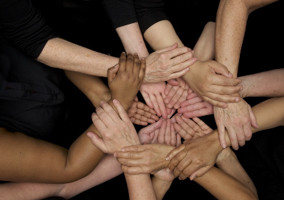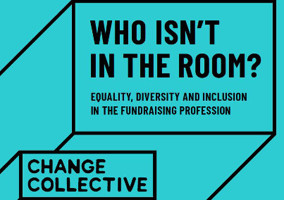Just one in five fundraisers believe charities are doing enough to address diversity and equality issues, according to research from Blackbaud Europe and the Institute of Fundraising yesterday.
The Status of UK Fundraising 2019 Benchmark Report found that only 21 per cent fundraisers agreed that the charity sector as a whole is taking “appropriate action to address the issue of diversity, equality and inclusion,” while 11 per cent thought the sector was “not doing enough.”
More than 4 in 10 fundraisers agreed that the sector was taking “some steps” but “still has lots more to do”.
Half believed that their own organisations were dealing with these issues appropriately, however.
The research drew on survey responses from 1,012 people working at a wide range of UK charities.
Only 8 per cent of the fundraisers responding to the survey were from ethnic minority groups. 84 per cent of junior level fundraisers were white, rising to 94 per cent of graduate or entry-level staff.
Later today the Institute of Fundraising will launch a new diversity strategy.
Writing in the report, Daniel Fluskey, head of policy and external affairs at the Institute of Fundraising, described the findings on ethnic minority and gender representation as “unfortunately, not surprising.”
“A more inclusive fundraising profession will take time, but we hope that every organisation reflects on what they are doing and takes additional steps and action where they can,” he added.
Susheila Juggapah, a former CharityComms editor and a digital expert in the sector, told Civil Society News: “I’m not surprised [by the findings]. When you speak to people of colour in the sector – and my perspective is looking at the BAME aspect of this – that’s what we think, we don’t even have to tell each other. We know the problem exists.”
Juggapah welcomed the availability of more data on diversity, but added: “What would be massively important would be an acknowledgment that there is a problem, because right now we are still at the stage of having to tell people there is a problem. And as a BAME person that is really frustrating when you’re doing it yourself because you’re telling other people to acknowledge your existence.”
The impact of GDPR
Asked about the impact of new rules governing charities’ digital communications, one year after the introduction of GDPR, 57 per cent fundraisers agreed that GDPR was “a drain on resources”.
There was less consensus on how the rules had impacted “our ability to raise funds,” with 30 per cent agreeing they had had a negative impact and 38 per cent disagreeing.
This suggests that “GDPR was not the bogeyman that many were anticipating and fearing,” said Fluskey.
The report also found that perceptions of GDPR were linked to charities’ income growth: “organisations where income is decreasing were more likely to agree that GDPR was a drain on resources and that it had a negative impact on fundraising.”
|
Related articles












